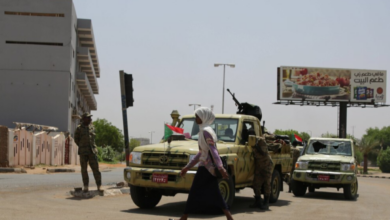Crisis in Nicaragua: the country would face its worst economic crisis in 30 years
Listen this article
It is expected a contraction of the Central American country's GDP of between 7.3% and 10.9% during 2019
Leer en español: Crisis en Nicaragua: el país enfrentará su peor crisis económica en 30 años
In October 2018, the International Monetary Fund (IMF) foresaw a contraction of Nicaragua's GDP during 2018 and, earlier this year, Forbes confirmed that the IMF forecast was correct. In relation to the economic contraction, the Nicaraguan government informed through a proposal of fiscal reforms to the Legislative Assembly that the decrease of the GDP represented around US $1,255.9 million that the inhabitants of the Central American country did not perceive.
You may also be interested: The proposals and economic challenges of Nayib Bukele
The economic future of Nicaragua does not look brighter after the Funides foundation reported that a contraction of between 7.3% and 10.9% of the country's GDP is expected during 2019, which accentuates the economic crisis and gives rise to name this country "the other Venezuela of Latin America", as the economic newspaper Portafolio recently did.
It is worth bearing in mind that the economic contraction was caused by the political and social crisis that Nicaragua is suffering since last April, when thousands of citizens protested a series of social security reforms carried out by the government of President Daniel Ortega. As reported by Portafolio, the protests not only resulted in hundreds of deaths, detainees and exiles, but also the breaking of the model of alliance maintained by the Executive Power with the big capital and the syndicates which, in the opinion of the private sector, had left "So many fruits and results" to the country.
Political crisis, economic cost
According to the Council on Foreign Relations, the ongoing demonstrations and the sociopolitical crisis in general resulted in a decrease of at least 10% of the country's labor force, the withdrawal of approximately US $ 1 billion in investments and the closure of a good number of companies, including hotels and restaurants that depended on tourism. The last sector mentioned was one of the pillars of the Nicaraguan economy that has suffered a heavy blow.
According to the Peruvian newspaper La República, in 2018 157,923 formal jobs were lost in Nicaragua. The economic situation has weakened so much that the president of the Superior Council of Private Enterprise (Cosep), José Aguerri, described it as a business "tsunami".
According to Aguerri, the measures of "collection nature" that the Ortega government has taken since April, such as the recent modifications to social security, which increased the share of companies and employees and did not have the consensus of the private sector, or the reform of the Tax Concertation Law, which increases the Income Tax, will only aggravate the economic situation. Also the Selective Consumption Tax and the income from the economic activity, capital and profits will worsen it, since all of the above will cause the closure of more companies, which means an increase in unemployment and poverty.
According to Funides, the economic crisis cannot be reversed with economic measures such as the one that Ortega's government is taking, since its origin lies in the socio-political crisis of the country. From this, they propose to achieve political agreements that, at least, guarantee the respect of constitutional rights, the freedom of political prisoners, the clarification of the truth behind the acts of violence and free, observed, transparent and anticipated elections.
Only in this way could the confidence of consumers, businessmen, and investors be recovered, which would be the first step towards economic recovery. However, with the current lack of these guarantees, Nicaragua seems to continue heading for its worst economic crisis in 30 years despite having ranked second in Central American countries with the highest growth before the events of last April.
LatinAmerican Post | Juan Diego Bogotá
Translated from "Crisis en Nicaragua: el país enfrenta su peor crisis económica en 30 años"






